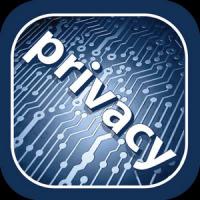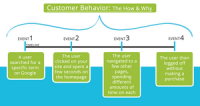-
Anonymizing Personal Data “Not Enough to Protect Privacy”: Study

Current methods for anonymizing data leave individuals at risk of being re-identified, according to new research. Researchers demonstrated that allowing data to be used — to train AI algorithms, for example — while preserving people’s privacy, requires much more than simply adding noise, sampling datasets, and other de-identification techniques.
-
-
Why the Ghost Keys ‘Solution’ to Encryption is No Solution
The use of applications such as Signal, WhatsApp, iMessage, and Facebook Messenger for communications secured by end-to-end encryption has exploded over the past few years. Today, regular users of these and similar services number in the billions around the world. The U.S. Justice Department and the FBI have claimed repeatedly that the extensive use of such services hampers their ability to conduct investigations, because they cannot access encrypted communications. Officials in other countries have put forward a proposal they say would provide the needed access. But due to the fundamentals of public key encryption, this regime would end up raising most of the same concerns as other encryption back-door proposals floated in recent years.
-
-
Private Surveillance Is a Lethal Weapon Anybody Can Buy
High-tech surveillance technology, once the purview of sophisticated spy services in wealthy countries, is now being offered by private contractors around the world as part of a highly secretive multibillion-dollar industry. While other kinds of weapons are subjected to stringent international regimes and norms — even if these are often broken — the trade in spy technology is barely regulated.
-
-
New U.S. visa rules may push foreigners to censor their social-media posts
Foreigners who decry American imperialism while seeking to relax on Miami’s sandy beaches or play poker at Las Vegas’s casinos may seek to soften their tone on Twitter. The reason? The U.S. State Department is now demanding visa applicants provide their social-media profiles on nearly two dozen platforms, including Facebook and Twitter.
-
-
Mass surveillance is coming to a city near you
The tech entrepreneur Ross McNutt wants to spend three years recording outdoor human movements in a major U.S. city, KMOX news radio reports. Conor Friedersdorf writes in The Atlantic that if that sounds too dystopian to be real, you’re behind the times. McNutt, who runs Persistent Surveillance Systems, was inspired by his stint in the Air Force tracking Iraqi insurgents. He tested mass-surveillance technology over Compton, California, in 2012. In 2016, the company flew over Baltimore, feeding information to police for months (without telling city leaders or residents) while demonstrating how the technology works to the FBI and Secret Service.
-
-
Lawmakers raise alarm over CBP’s use of facial recognition tech on American citizens
Lawmakers last week sent a letter to acting DHS secretary, sounding the alarm over reports that U.S. Customs and Border Protection (CBP) is using facial recognition technology to scan American citizens — raising concerns over privacy and potential misuse of the American people’s biometric data.
-
-
Dystopian Future Watch: Is San Francisco’s facial recognition ban too little, too late?
Life just keeps creeping along, leading us step-by-step closer to living in a Philip K. Dick dystopian future—in real-time. And often, in our surveillance culture, we are willing participants to work alongside Big Brother. Harmon Leon writes in the Observer that Remember how fun it used to be to see facial recognition and retina scanning in sci-fi movies? We loved it in RoboCop and Blade Runner, right? Now, many of these biometrictechnologies have become a nightmarish reality.
-
-
Big tech surveillance could damage democracy

Data is often called the oil of the 21st century. The more tech companies know about their users, the more effectively they can direct them to goods and services that they are likely to buy. The more companies know about their users, the more competitive they are in the market. But this business model – what I consider spying machines – has enormous potential to violate civil liberties. Big tech is already being used abroad to enhance the power of repressive regimes, as my work and others’ has shown.
-
-
Silicon Valley’s scramble for China
In August 2012, China launched one of its first major “smart city” projects for the remote oil town of Karamay in the autonomous province of Xinjiang. “Information technology is not just about technology. It should be integrated with all aspects of life in our city and make people’s lives more convenient,” said then Karamay Mayor Chen Xinfa. Nafeez Ahmed writes in Coda Story that A report released last year by subsidiary Deloitte China, titled “Super Smart City: Happier Society with Higher Quality,” celebrates China’s drive to build “super smart cities” which integrate data across services like health care, transport, education and public safety. Billed by Deloitte as a virtual utopia, China’s smart cities represent the biggest and most intrusive surveillance architecture ever built by any single nation, according to experts and analysts.
-
-
San Bernardino Court asked to review cell-site simulator, digital search warrants likely improperly sealed
Since the California legislature passed a 2015 law requiring cops to get a search warrant before probing our devices, rifling through our online accounts, or tracking our phones, EFF has been on a quest to examine court filings to determine whether law enforcement agencies are following the new rules.
-
-
Dystopian Future Watch: Is San Francisco’s facial recognition ban too little, too late?
Life just keeps creeping along, leading us step-by-step closer to living in a Philip K. Dick dystopian future—in real-time. And often, in our surveillance culture, we are willing participants to work alongside Big Brother. “Remember how fun it used to be to see facial recognition and retina scanning in sci-fi movies?” Hermon Leon asks in the Observer. “We loved it in RoboCop and Blade Runner, right? Now, many of these biometric technologies have become a nightmarish reality. Let’s take a look.”
-
-
DHS’ assertion of broad authority to search travelers’ phones, laptops challenged
The Electronic Frontier Foundation (EFF) and the ACLU the other day asked a federal court to rule without trial that the Department of Homeland Security violates the First and Fourth Amendments by searching travelers’ smartphones and laptops at airports and other U.S. ports of entry without a warrant.
-
-
How artificial intelligence systems could threaten democracy

U.S. technology giant Microsoft has teamed up with a Chinese military university to develop artificial intelligence systems that could potentially enhance government surveillance and censorship capabilities. The advent of digital repression is profoundly affecting the relationship between citizen and state. New technologies are arming governments with unprecedented capabilities to monitor, track and surveil individual people. Even governments in democracies with strong traditions of rule of law find themselves tempted to abuse these new abilities.
-
-
Drones pose significant cyber, privacy challenges
Growing drone use in populated areas poses significant risks that, without additional safeguards, could result in attacks by malicious entities and exploited for use in cyberattacks, terrorism, crime and invasion of privacy.
-
-
Putting data privacy in the hands of users
In today’s world of cloud computing, users of mobile apps and web services store personal data on remote data center servers. Services often aggregate multiple users’ data across servers to gain insights on, say, consumer shopping patterns to help recommend new items to specific users, or may share data with advertisers. Traditionally, however, users haven’t had the power to restrict how their data are processed and shared. New platform acts as a gatekeeper to ensure web services adhere to a user’s custom data restrictions.
-
- All
- Regional
- Water
- Biometrics
- Borders/Immig
- Business
- Cybersecurity
- Detection
- Disasters
- Government
- Infrastructure
- International
- Public health
- Public Safety
- Communication interoperabillity
- Emergency services
- Emergency medical services
- Fire
- First response
- IEDs
- Law Enforcement
- Law Enforcement Technology
- Military technology
- Nonlethal weapons
- Nuclear weapons
- Personal protection equipment
- Police
- Notification /alert systems
- Situational awareness
- Weapons systems
- Sci-Tech
- Sector Reports
- Surveillance
- Transportation
Advertising & Marketing: advertise@newswirepubs.com
Editorial: editor@newswirepubs.com
General: info@newswirepubs.com
2010-2011 © News Wire Publications, LLC News Wire Publications, LLC
220 Old Country Road | Suite 200 | Mineola | New York | 11501
Permissions and Policies
Editorial: editor@newswirepubs.com
General: info@newswirepubs.com
2010-2011 © News Wire Publications, LLC News Wire Publications, LLC
220 Old Country Road | Suite 200 | Mineola | New York | 11501
Permissions and Policies
